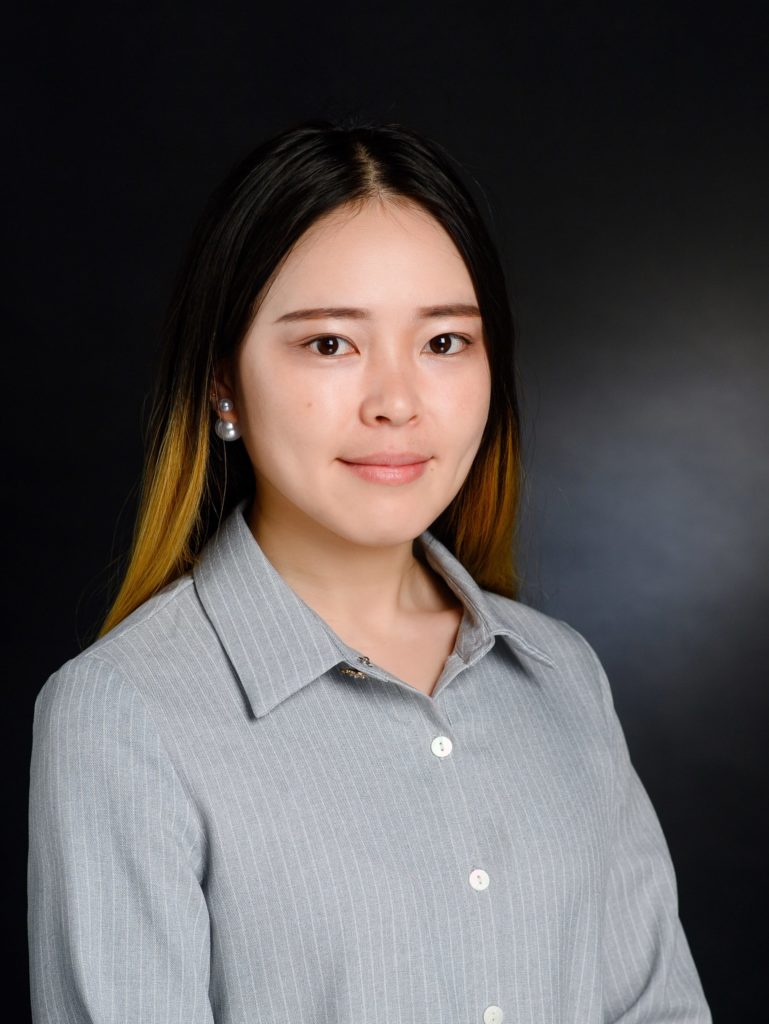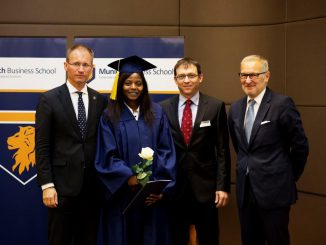
This fall, MBS introduced the “MBS Outstanding Thesis”, a new working paper series to recognize outstanding final theses of students and to give them a platform. MBA alumna Jiaojiao Zhao is the first to publish her master’s thesis in this series. In the interview, she gives insights into the development process of her thesis and explains what the recognition as MBS Outstanding Thesis means to her. In addition, MBS Professor Florian Bartholomae, who initiated the new working paper series, explains how it came about and what his expectations are from the new series.
Professor Bartholomae, you initiated the new working paper series “MBS Outstanding Thesis”, how did you come up with this idea?
Prof. Dr. Florian Bartholomae: In the past, many colleagues have supervised great theses that prove how excellent MBS students are. Unfortunately, until now there was no appropriate medium to publish this. However, the structure of a thesis is quite unsuitable for an article in a journal – for example, the basic literature does not have to be discussed in such contributions. A corresponding modification and focusing of the thesis would again require substantial additional time, which unfortunately can only rarely be spent by the supervising professor or student, for whom the thesis usually represents the completion of their academic studies. On the other hand, it is a pity not to publish these really great ideas. To counteract this, the idea has arisen to open up a new format for this in the working paper series that effectively complements the already existing formats MBS Research, the series for academic research papers, and MBS Knowledge, the platform for practice and teaching-related research projects.
What is the goal of the new working paper series and what do you expect from the student publications?
Prof. Dr. Florian Bartholomae: The primary objective is to bring knowledge and insights acquired by students into the academic and social debate. In my opinion, universities have the duty not only to advance research but also to disseminate it to society – in other words, to create the link between the “ivory tower” and the “machine room”. A secondary objective is, of course, to list the outstanding works written by students at MBS of which they can be rightly proud and can refer to them in their curriculum vitae. Since the thesis is proposed to the research committee by the respective supervisors and is reviewed by the committee, the thesis also represents the performance behind which MBS stands as a university and thus also wants to send a corresponding signal with the publications. As an economist, I always think in terms of incentives, so that I also see the series as an incentive for current students to be inspired by the work, to see what characterizes a high-quality thesis and to develop the ambition to publish there too.
Which theses qualify for the “MBS Outstanding Thesis”? Do certain criteria have to be met?
Prof. Dr. Florian Bartholomae: As the name of the series already suggests, it is supposed to be an outstanding performance. This will certainly be reflected in the grade, but should not be the only criterion. The grade also takes into account many technical factors such as correct citation or the like – of course there is often a high correlation between content and formal quality. However, a (very) good grade does not mean that the thesis is appropriate for the series, since it is primarily intended to present new findings or particularly innovative methods. A grade threshold is therefore deliberately not set so that all students can qualify for it or be proposed for publication by their supervisors. The series is intended to encourage students not only to continue on existing (safe) paths, but also to explore new paths, question existing approaches or take a different perspective.
And now to you, Jiaojiao. Your thesis is the first publication in the new working paper series, congratulations! Your supervisors regarded your thesis as an excellent paper and immediately submitted it to the new working paper series. What was your reaction to this?
Jiaojiao Zhao: I was very surprised when my supervisors suggested me to publish this work because I’ve never imaged myself publishing any paper in Europe. I was simply enjoying the research and trying to finalize the thesis as best as I can.
The title of your thesis is „Bottom-up Portfolio Construction of Public Return Factors: Application to European Private Equity Fund Benchmarking“. Could you tell us a bit more on what the work actually is about and how you tackled the topic? Judging from the title, it seems to be something quite complex?

Jiaojiao Zhao: Briefly speaking, this work is about applying a newly popularised asset pricing model – the q-factor model – to evaluate the performance of private equity funds. I implemented a bottom-up portfolio construction solution to a broad European stock sample and computed the four risk factors of this asset pricing model. These risk factors are then used to estimate the abnormal return and risk exposure of the European buyout funds and venture capital funds. Yes, it’s a very specific and complex topic in finance.
Your thesis was written in cooperation with the company AssetMetrix. How did you come up with the topic and how did the collaboration develop?
Jiaojiao Zhao: The quantitative specialists at AssetMetrix are constantly working on the most comprehensive and advanced analytic model suites for private equity investments. We noted that this new asset pricing model of Hou, Xue and Zhang (2015; 2020) has not yet been tested in the European market. We were all very curious how these risk factors explain the return of the European equity market and how we can apply them to the EU fund performance analysis. So, I carried out the research and testing, and the analytic team provided me with technical guidance and IT support such as R programming for the complicated computation process.



